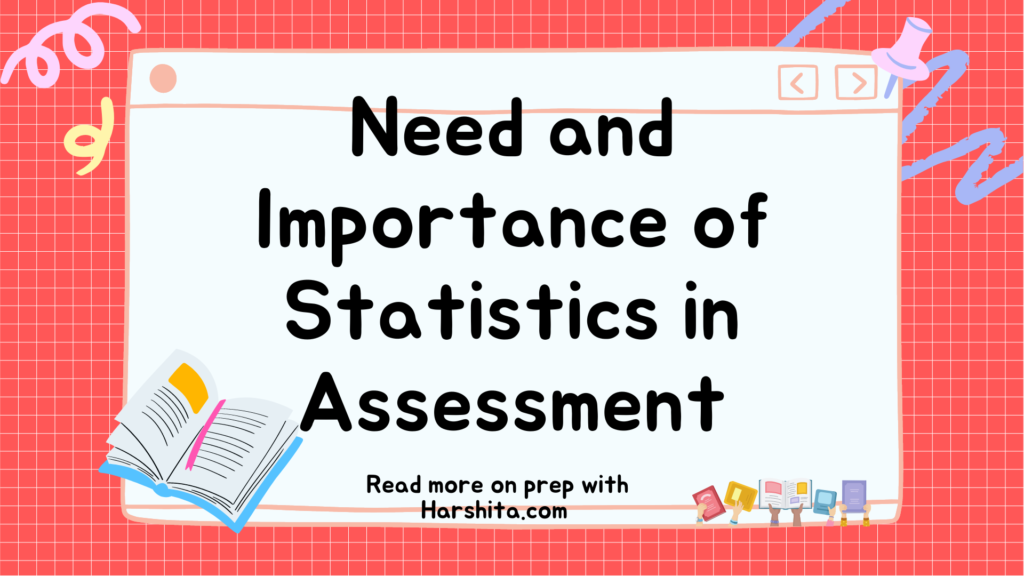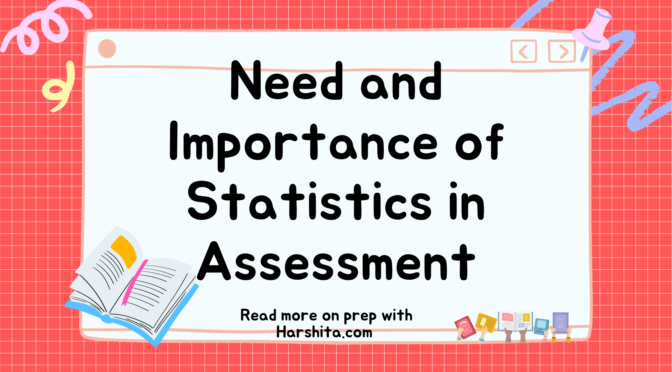Statistics plays a crucial role in educational assessment by providing the tools and techniques necessary for collecting, analyzing, and interpreting data related to student performance and educational outcomes. Let’s discuss the need and Importance of Statistics in Educational Assessment.
Here are the detailed needs and importance of statistics in educational assessment:
- Data Collection: Statistics provides methods and techniques for collecting reliable and valid data in educational assessment. It helps in designing assessment instruments, such as tests, surveys, and questionnaires, to gather information about student knowledge, skills, and attitudes. By using statistical sampling techniques, educators can ensure that the collected data represents the entire student population.
- Data Analysis: Once the data is collected, statistics allows for the analysis and interpretation of the information. Statistical techniques, such as descriptive statistics, help summarize and present data in a meaningful way, providing insights into student performance, trends, and patterns. This analysis enables educators to identify strengths and weaknesses, assess the effectiveness of instructional strategies, and make data-driven decisions to improve educational practices.
- Test Development and Evaluation: Statistics is essential in the development and evaluation of educational tests and assessments. Item analysis techniques, such as item difficulty and discrimination indices, help assess the quality and effectiveness of test items. Statistical methods, like classical test theory or item response theory, are used to determine the reliability and validity of the assessments, ensuring that they measure what they are intended to measure.
- Standard Setting: Statistics provides methodologies for setting standards and establishing performance benchmarks in educational assessment. Through techniques like norm-referenced or criterion-referenced scoring, statistical analysis helps define proficiency levels and determine cutoff scores for different levels of achievement. This enables educators to compare student performance, identify high achievers or students in need of additional support, and monitor progress over time.
- Program Evaluation: Statistics plays a vital role in evaluating educational programs and interventions. By employing experimental or quasi-experimental designs and statistical techniques like hypothesis testing and effect size calculation, educators can assess the impact and effectiveness of specific educational interventions. This information helps in making informed decisions about program modifications, resource allocation, and evidence-based practices.
- Accountability and Policy Development: Statistics are essential for educational accountability and policy development. Educational systems and policymakers rely on statistical data to monitor and report on student achievement, school performance, and educational outcomes. Data-driven insights derived from statistical analysis inform policy decisions, resource allocation, and educational reforms, aiming to improve overall educational quality and equity.
- Educational Research: Statistics is a fundamental tool in educational research. It allows researchers to design studies, analyze data, and draw meaningful conclusions. Statistical techniques such as correlation, regression analysis, and multivariate analysis enable researchers to investigate relationships between variables, identify factors influencing educational outcomes, and generate evidence for educational theories and practices.
In summary, statistics is essential in educational assessment as it provides the means to collect, analyze, and interpret data related to student performance and educational outcomes. It supports evidence-based decision-making, quality assurance, and policy development, ultimately leading to improved educational practices and outcomes for students.
Also Read : Assessment as Learning

Also Visit : Prep with Harshita

